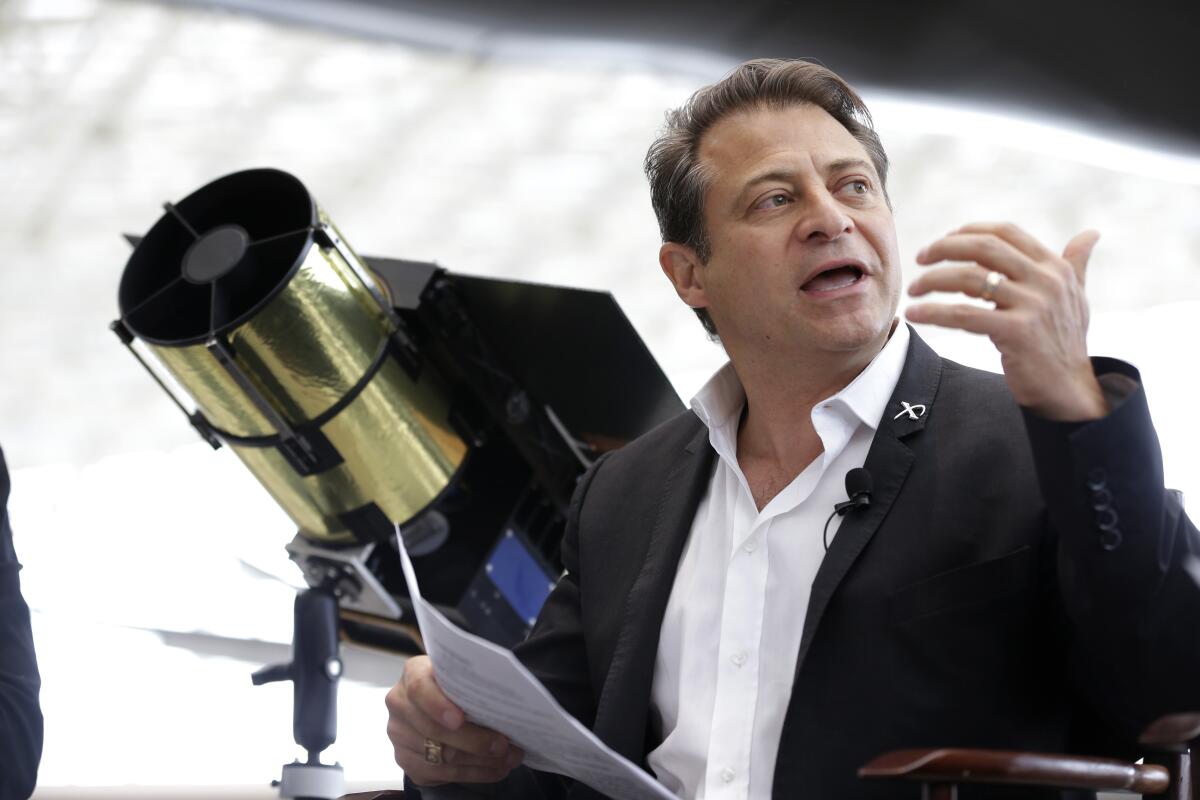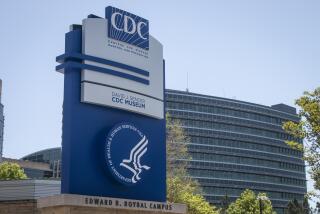Why a California scientist hosted superspreader event amid a deadly COVID-19 surge

As Southern California last month reeled from a COVID-19 surge that overwhelmed hospitals, bottlenecked ambulance systems and killed thousands, a physician hosted a conference in Culver City.
Peter Diamandis, who is also an engineer, executive and scientist, believed he could create an âimmunity bubbleâ and safely host a scaled-down version of his pricey annual tech conference.
Instead, the conference became a superspreader event that infected 24 people, including Diamandis, with the novel coronavirus.
âI thought creating a COVID âimmunity bubbleâ for a small group in a TV studio setting was possible,â Diamandis, 59, wrote in a blog post last week. âI was wrong.â
In a statement to The Times, Diamandis said none of the cases, including his, were serious, and âvirtually all have fully recovered.â
But the mistakes he made underscore the risk of indoor events and the importance of social distancing, masks and vaccines during a pandemic.
Diamandis, who has started more than 20 companies, including one dedicated to finding a vaccine for the South Africa coronavirus variant, has hosted the annual Abundance 360 Summit for nearly a decade.
The conference attracts executives and entrepreneurs from across the globe to discuss topics such as artificial intelligence, synthetic biology and robotics.
Diamandis knew the pandemic, which has killed more than 47,000 Californians, precluded hosting the conference at a Los Angeles-area hotel.
Months earlier, A360âs parent company, Singularity University, canceled a large in-person gathering. But would-be attendees sick of living in isolation and willing to pay more than $30,000 inundated Diamandis and his team with requests.
âHaving been socially isolated for almost a year, it was understandable that people wanted to connect in person,â Diamandis wrote.
His team considered hosting an outdoor event, eventually opting to transform his XPrize Foundation offices in Culver City into a virtual television studio so hundreds could watch online and 30 could attend the three-day conference in person.
Also in attendance were nearly 20 members of the support staff and instructors and a 35-person audiovisual team, Diamandis wrote.
Diamandis believed he could create a COVID-free zone with polymerase chain reaction tests, considered by many to be the gold standard because they use genetic information to detect the virus.
Everyone was required to take a PCR test 72 hours before the conference started Jan. 23, then take another test when they arrived. A second swab was sent to a lab to confirm the results.
According to Diamandis, attendees were tested at least five times during the conference. At least four doctors were on-site. Intravenous vitamins and therapies that claim to boost immunity were provided.
âAs a result, we felt awesome, we felt safe,â Diamandis said. âBut I was wrong.â
Two days after the conference ended, a staff member tested positive.
Diamandisâ team notified attendees of the outbreak and requested they quarantine, contact trace and retest.
About 25% of those in attendance tested positive. Only the audiovisual team, which was mostly isolated and always wore masks, was spared, Diamandis wrote.
Masks were not mandatory for attendees during much of the conference.
âI allowed myself a false (and dangerous) sense of security based on the belief that sequential PCR testing serves as a safety mechanism ⦠which I can now tell you is a fallacy,â Diamandis wrote.
Though the conference probably violated a Culver City coronavirus order, city officials do not plan to fine the company after the fact, Assistant City Manager Jesse Mays said in a statement.
âThe city is focused on prevention and education,â Mays said.
If city officials had known about the event in advance, they would have informed organizers about the prohibition against large indoor gatherings.
âIf they insisted on proceeding, we would have taken additional steps up to and including legal action,â Mays said.
More to Read
Sign up for Essential California
The most important California stories and recommendations in your inbox every morning.
You may occasionally receive promotional content from the Los Angeles Times.











